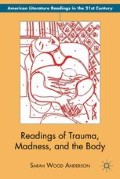Abstract
Hemingway indicates that there is something more to the colonel’s condition than physical injuries and a deeply rooted sense of bitterness. Renata’s refrain of “don’t be bitter” and “don’t be so rough” suggests more than her desire for a gentler version of his confession; it is not like Hemingway to repeat details, so this frequency illustrates its importance. It is not just that Cantwell’s language or his descriptions are too crude for Renata; this bitterness is indicative of a deeper injury, a mental one. To illustrate this, consider when the narration says, “Then he turned bad and he said” (Hemingway, River 224).1 If the colonel can “turn bad,” then perhaps he can also turn bitter or rough. Being bad comes to mean more than a way of speaking; it comes to illustrate the moments in which the colonel falls into a mode of bitterness that can be seen as a manifestation of his madness.2 Renata’s refrains, then, are indications of his psychic instability, a condition from which she must calm him down. Not only his confessor, she is also his therapist. Often reclining on Renata’s body as he talks, Cantwell is engaged in the process of mental recovery.
Access this chapter
Tax calculation will be finalised at checkout
Purchases are for personal use only
Preview
Unable to display preview. Download preview PDF.
Notes
“Trauma narrativists immerse us in individual experiences of terror, arbitrary rules, and psychic breakdown so that we might begin to appreciate these situations. These writers explore the problematics of action in coercive circumstances that seem impossible or unbelievable to outsiders and demonstrate that the standards by which these events can be measured and judged have to extend beyond fact-based logic of historical inquiry or the myths of humanism” (Vickroy, Laurie. Trauma and Survival in Contemporary Fiction. Charlottesville, VA: University of Virginia Press, 2002, 34).
Copyright information
© 2012 Sarah Wood Anderson
About this chapter
Cite this chapter
Anderson, S.W. (2012). Readings of Gender and Madness in Hemingway’s Across the River and into the Trees and The Garden of Eden . In: Readings of Trauma, Madness, and the Body. American Literature Readings in the 21st Century. Palgrave Macmillan, New York. https://doi.org/10.1057/9781137263193_3
Download citation
DOI: https://doi.org/10.1057/9781137263193_3
Publisher Name: Palgrave Macmillan, New York
Print ISBN: 978-1-349-44031-3
Online ISBN: 978-1-137-26319-3
eBook Packages: Palgrave Literature CollectionLiterature, Cultural and Media Studies (R0)

